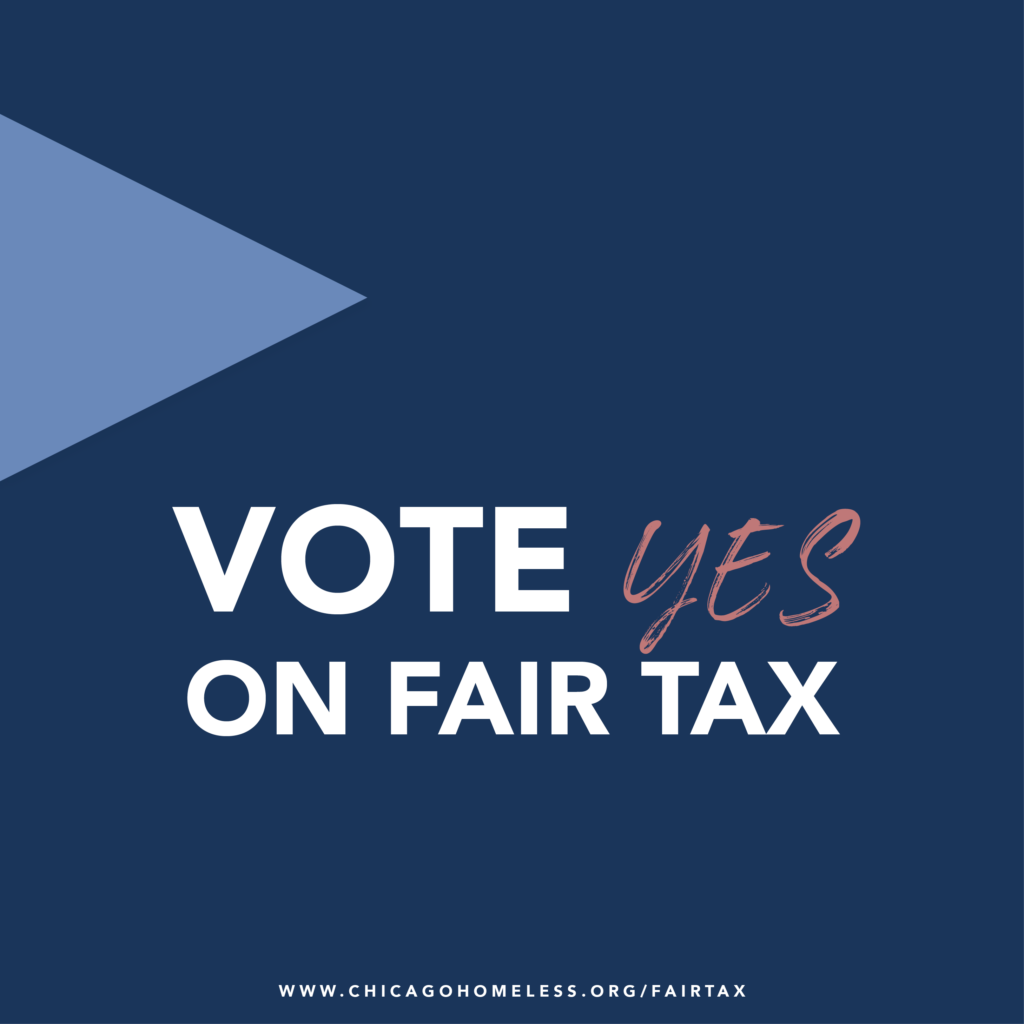Common Misconceptions Debunked
The first question on Illinois ballots this election asks voters whether they support an amendment to the Illinois constitution to change our unfair flat income tax to a fair graduated tax. We encourage you to vote YES.
Right now, Illinois is one of only nine states in the country that has a flat income tax, at a rate of 4.95%. This means everyone – from teachers, nurses, and delivery workers, to real estate moguls and corporate CEOs – pays the same rate.
Passing a Fair Tax would relieve the burden on the lowest income Illinoisans. Under this plan, anyone who earns less than $250,000 would pay the same or less in income taxes, and those who make more than $250,000 would pay a slightly higher rate, but only on their income over $250,000.
A Fair Tax will generate an additional $3.4 billion in funds to be invested in our communities.
But billionaires like Ken Griffin are pouring millions of dollars into misinformation campaigns about the Fair Tax. So, let’s dispel some of the concerns we’ve been hearing about the Fair Tax:
Is the Fair Tax a tax increase on the middle class?
No. Under the Fair Tax Rate bill passed by the General Assembly last spring, 97% of tax filers will pay less or the same. Only the wealthiest top 3% of tax filers, who make $250,000 or more, will pay a little more, and only on their income over a quarter-million dollars a year. Calculate the effect of the Fair Tax on your income tax here.
Isn’t the Fair Tax just a blank check for future tax increases?
No. Voters know what new rates will go into effect when the Fair Tax amendment is approved (see above). Going forward, Fair Tax reform doesn’t give legislators any more or less power to change tax rates than they have always had. Fair tax reform does give lawmakers the flexibility to change rates based on income, raising rates for wealthy people who can afford to pay a little bit more, and reducing rates for the middle class and those struggling to get there. Without the Fair Tax, taxes will have to be raised on all Illinoisans by 20% to address our structural deficit.
In fact, the Center for Tax and Budget Accountability found that states with a graduated income tax like the Fair Tax are more than twice as likely to cut taxes as to raise them.
Will the Fair Tax hurt small businesses?
Unlikely. According to the Center for Tax and Budget Accountability’s analysis of 2017 IRS data, more than 95% of small businesses owners would not be affected by the increase, as their pass-through income is less than $250,000. Less than the top 5% of partnerships and S-Corporations would see a small tax rate increase.
Additionally, data shows that tax cuts for low- and middle-income individuals, like those included under the Fair Tax amendment, will stimulate more consumer spending as these consumers tend to spend every additional dollar they receive in income. This could benefit small businesses and the Illinois economy generally because consumer spending accounts for more than two-thirds of all U.S. economic activity.
Will the Fair Tax affect my retirement income?
No. Illinois is one of just a dozen states that don’t collect income tax on any retirement income such as 401(k), IRA, pension or Social Security benefits. Fair Tax reform doesn’t change that, and does not make it easier to tax retirement income in the future.
AARP endorsed the Fair Tax Amendment, projecting, “if Illinois doesn’t find a way to fix the budget crisis, state lawmakers may be forced to consider adding a tax to retirement income or more drastic spending cuts that will especially hurt those 50+ and their families.”
Will the wealthiest Illinoisans leave Illinois if their income taxes increase?
Research shows there is no correlation between a state’s tax rates and the likelihood that high-income families leave the state. In fact, many of those who leave Illinois move to states with higher, often graduated, income taxes.
We hope that you will vote YES on the Fair Tax when you cast your ballot. Information about how to register and vote if you are experiencing homelessness is available here.

